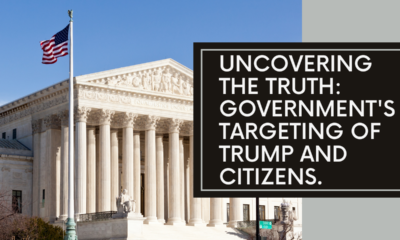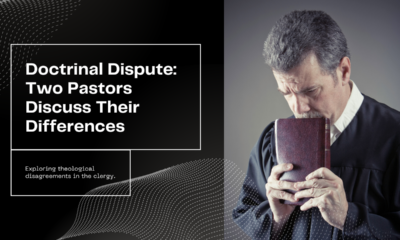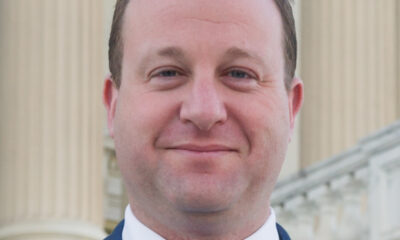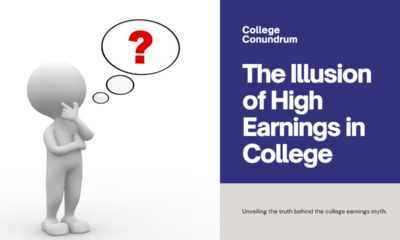Executive
Election fraud – AP gives away the game
The Associated Press carried a report showing that electronic voting machines are hackable, and election fraud can happen that way.
Both parties have suspected, or at least accused each other, of election fraud since 2016. Now the Associated Press just revealed how the election fraud in 2020 happened. Of course they won’t say “it happened, and this is how they did it.” But they carried the story yesterday on a secret report by a Michigan computer-science professor. His report proves that any election, that uses any kind of electronic device to record votes, is subject to manipulation.
Full disclosure
In the interest of full disclosure, your editor reveals that he is a sworn Officer of Election. But the views he expresses here are his own and do not represent those of his County Board of Elections.
How election fraud happens
Election fraud can happen at any part of the voting process. Here by election fraud, CNAV does not mean the practice of candidates lying about one another. People have done that since Athens invented the popular vote for passing laws or choosing leaders.
Beyond the simple expedient of campaign lies, election fraud includes practices like:
- Collecting, filling out, and paying for other people’s ballots (“ballot harvesting”),
- Voting twice, or more often, in the same election,
- Voting in the names of others, typically inactive (including dead) voters,
- Illegally staying registered to vote, and voting, in jurisdiction(s) in which one no longer lives, and
- Deliberate miscounting of votes for a particular candidate or yes or no on a public question.
That last concerns us here. “Voting machines” take the count out of the hands of live human beings. This held even for the first mechanical voting machines that used hidden gears to keep a running tally. After polls closed, the Officers of Election then turned a heavy hand crank to “crank out” a final tally. Then the Chief OOE, or a fellow OOE that the chief chose, would carry this report to the central office of the jurisdiction running the election.
The ability to miscount votes is even easier with today’s electronic voting machines. These can be either full paperless consoles, or scanner-tabulators that swallow paper ballots, counting them as they go. These electronic machines are the subject of the excitement this week.
The J. Alex Halderman Report
Yesterday, the Associated Press released this report admitting what we all knew. Which is that electronic voting machines can become instruments of election fraud.
Dr. J. Alex Halderman, professor of computer science at the University of Michigan, sounded the alarm. He singled out Dominion Voting Systems, one of a few companies that provide electronic voting machines in the United States. Dr. Halderman showed how bad actors could do it, if they had physical access to the machine or could connect to a machine through the Internet. An attacker could even forge the electronic “keys” to the machines, and then do anything with them.
Attackers could then mark ballots inconsistently with voters’ intent, alter recorded votes or even identify voters’ secret ballots.J. Alex Halderman
Dr. Halderman has been trying to get this report out since January of this year. Kate Brumback of the AP has also reported on concerns Halderman and others have raised for years about these machines.
But Ms. Brumback and the AP have a problem. They don’t want to admit that Joe Biden stole the election. So they couch their reporting to say that we don’t have to believe that election fraud did happen, but we have to worry that it might happen one of these days.
Special pleading
Here’s the problem: this same Dr. Halderman tried to get Hillary Clinton to press for a recount of the Election of 2016. Back then, he actually accused the Trump campaign of stealing the election from Clinton. Debate coaches have a special phrase for that kind of thing: special pleading.
But that does not mean he’s wrong and election fraud can’t happen that way. He admits it could happen. In fact he’s one of many experts who, in 2018, recommended that all voters cast paper ballots.
But they made a big mistake: they suggested using optical scanner-tabulators to count the votes. They assured their readers that keeping the paper ballots would allow for post-election audits. And they would. But try asking for such an audit. With corrupt judges, that’s not going to happen.
In case anyone doubts that election fraud is a problem, consider this AP report by fellow AP correspondent Bob Christie. It describes the sophisticated operation by Guillermina Fuentes of San Luis, Arizona, for ballot harvesting. Again, Mr. Christie dances around the issue of whether her cheats decided an election. But even he admits authorities are still looking to see how big her operation was.
Separately, The Guardian reported two years ago that a handful of companies make all the electronic voting machines Americans use. Their reporter said,
They think they are above the law.
The sure way to prevent election fraud
CNAV appreciates the expert panel’s report up to a point. And that is: to prevent election fraud at the counting stage, ditch the scanners and count all ballots by hand. The French recently ran an election that way, and had results within a day. Americans can do the same. Yes, it means hiring hundreds, or thousands, of junior OOEs to pair off, count ballots in batches, then switch off and count them again. It could also mean asking voters to mark a different ballot for each race or public question. That’s how Americans settled elections before we invented mechanical voting machines. The payroll cost can’t be much more than the costs of acquisition, maintenance, and (pretense at) security of voting machines. Furthermore, any excess cost would be a small price to pay to restore confidence in elections.
By the way: the pathway to secure elections does not include hiring OOEs from temporary help placement agencies. But it might include refinements CNAV has suggested before, like the Mobile Voting Precinct. It also definitely includes getting rid of mail-in ballots.
Terry A. Hurlbut has been a student of politics, philosophy, and science for more than 35 years. He is a graduate of Yale College and has served as a physician-level laboratory administrator in a 250-bed community hospital. He also is a serious student of the Bible, is conversant in its two primary original languages, and has followed the creation-science movement closely since 1993.
-

 Education4 days ago
Education4 days agoCHAPTER 13: Fomenting Race Wars Begins in Kindergarten
Space Is No Longer the Final Frontier—Reality Is [forthcoming release May 2024] -

 Executive3 days ago
Executive3 days agoCHAPTER 14: Changing Hearts and Minds
Space Is No Longer the Final Frontier—Reality Is [forthcoming release May 2024] -

 Guest Columns3 days ago
Guest Columns3 days agoWhen Artificial Intelligence Tells You What A “Useful Idiot” In The Mainstream Media Cannot — The Truth
-

 Executive2 days ago
Executive2 days agoTrump is not a paranoiac after all
-

 Executive4 days ago
Executive4 days agoCensorship Industrial Complex redux
-

 Clergy4 days ago
Clergy4 days agoWhich One Is Worse, John Lindell Or Mark Driscoll? SHAMEFUL! (Videos)
-

 Executive4 days ago
Executive4 days agoDon’t Let Colorado Become the Next Energy Crisis State
-

 Executive4 days ago
Executive4 days agoAmericans Want Congress to Act on Border Security. Will They?











[…] of the J. Alex Halderman report of the hackability of Dominion Voting Services’ voting machines. About that second part: CNAV […]
[…] of all, we have the J. Alex Halderman Report that electronic scanner-tabulators were eminently […]